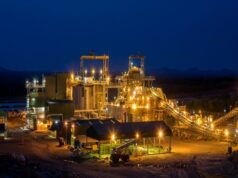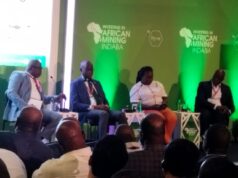- 144.002 billion FCFA collected and distributed
- The 34 billionaire communities are composed of 21 communes and 13 regions
- Houndé has received the biggest prize with 7.028 billion FCFA, followed by Gorom-Gorom and Falangountou with 5.736 billion FCFA each
- A fund allocated to investments
- The great challenge lies in the proper use of resources
Between 2019 and 2022, the sum of 144.002 billion FCFA was collected and distributed to all the local authorities, consisting of the communes and regions of Burkina Faso. This sum was distributed under the Local Development Mining Fund (FMDL).
The FMDL was created by the 2015 Mining Code. It is funded on the one hand by the State’s contribution of 20% of the proportional royalties collected, linked to the value of the products extracted and/or sold and, on the other hand, by the holders of mining permits and beneficiaries of industrial quarrying authorisations to the tune of 1% of their monthly turnover excluding taxes or the value of the products extracted during the month.
A national committee is responsible for the distribution of the sums collected every six months. The distribution is made according to a distribution key that favours the communes impacted by mining activity. The 144.002 billion FCFA have benefited the communities after 7 distributions. Although the FMDL was created in the Mining Code in 2015, it began operating in 2019.
Since the beginning of the transfers, 34 communities including 21 communes and all 13 regions have already received more than one billion FCFA each for their investments.
Houndé has received the biggest prize with 7.028 billion FCFA
These billionaire communities have received 132.28 billion FCFA, which is equivalent to 92% of the total amount distributed. (read the table).
At the commune level, Houndé is in the lead with 7.028 billion FCFA received. It is followed by the communes of Gorom-Gorom and Falangountou, which each received 5.736 billion FCFA, Partiaga (4.145 billion FCFA), Boudry (3.670 billion FCFA), Bagassi (3.660 billion FCFA), etc.
These billionaire communes have one thing in common; they are all home to mining companies in production. The communes in the South West region with 128.182 million FCFA each received the smallest amounts.
In addition to the municipalities, the regional councils also benefited from the FMDL. All 13 regional councils also received more than a billion each.
The Sahel region came out on top (4.006 billion FCFA), followed by the Boucle du Mouhoun region (3.287 billion FCFA).
The FMDL: a solution for local development
The creation of the FMDL is justified by the low contribution of mining to the socio-economic development of communities around mining sites. This low contribution of the sector has resulted in crises between the populations, who are dissatisfied with the benefits of mining activity, and the mining companies.

Indeed, before 2015, the only mining resources transferred to the communities consisted mainly of surface taxes and patents.
The surface tax is paid by all mining companies according to the nature, age and surface area of the mining permit. Of the amount collected, only 20% is retroceded to the communities hosting the mines. As for the patente, it is paid by the operating companies after an exemption period corresponding to half the life of the permit. It is on the strength of this observation that some voices were raised and obtained the creation of the FMDL to finance the beneficiaries’ community investment programmes.
In the long run, the FMDL should initiate a real development of the beneficiaries and prepare them for the post-mining era.
To achieve this objective, particular emphasis must be placed on utilisation. It has been observed that communities excel in non-value-added spending while the populations are experiencing problems with education, health, drinking water and sanitation.
Rachid Ouedraogo










